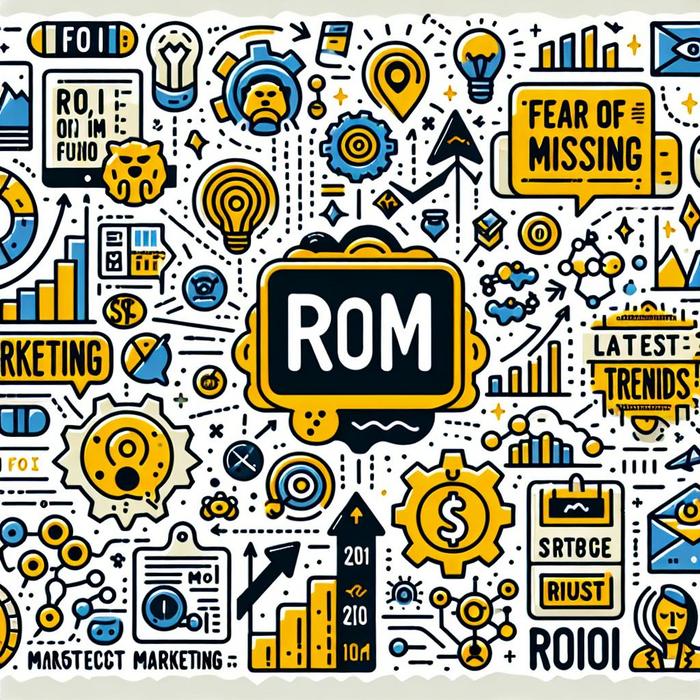Why Are Value-Based Campaigns the Most Effective ROI Tactics?
Have you ever considered how impactful value-based campaigns can be on your bottom line? A shift toward these marketing strategies can significantly improve Return on Ad Spend (ROAS) and foster meaningful engagement with your clientele. As a business leader, it’s crucial to understand why these campaigns have the potential to revolutionize your marketing efforts.
Ditch The Traditional And Embrace The Value-Based
Traditionally, marketing campaigns have focused primarily on products or services offered by a business. But what if there was a more effective approach? Value-based campaigns take a customer-centric perspective, focusing on delivering value to the consumer and improving their overall experience.
This strategic shift is necessitated by the rising competitiveness in the marketplace, where consumers have a plethora of options to choose from. Differentiating your business not just on products or services, but on the value you provide, can be the competitive advantage you need.
Reflecting on Andrew Marr’s recent post on LinkedIn highlighting actionable digital marketing trends, value-based optimization emerges as a key focus for business executives interested in improving their ROAS.
On our website, we delve deeper into the fundamentals of effective value-based optimization. Take a moment to explore our comprehensive guide on these techniques.
Levelling Up ROAS With Value-Based Campaigns
So, how do value-based campaigns impact ROAS? By adopting a value-based strategy, you can improve customer satisfaction, leading to increased customer lifetime value and brand loyalty. This ultimately translates into reduced customer acquisition costs and increased revenue, improving your ROAS.
ROAS improvement isn’t an overnight process; it requires strategic implementation and careful monitoring to evaluate the effectiveness of your campaigns. Understanding the correlation between value-based campaigns and ROAS can serve as a springboard to achieving superior marketing performance.
The importance of aligning your marketing strategy with your audience’s values is emphasized by Emily Kramer in her LinkedIn post. She argues how understanding your product differentiation can be a crucial aspect of value-based campaign implementation.
To learn more about tailored solutions for value-based campaigns and ROAS improvement, check out our article on the subject.
Value-Based Optimization: The Future of ROI Tactics?
The importance of value-based optimization cannot be underestimated. While being one of the latest marketing trends, it promises to make a strong long-term impact on ROI tactics.
An emphasis on value to the customer encourages more meaningful engagement and fosters trust. This not only enhances brand reputation but also translates to increased sales and improved ROI.
After all, as marketing expert Hayden Cashion emphasizes on LinkedIn, simplicity is often the key to an effective marketing strategy. And a value-based approach offers just that – a simple, direct, and highly effective path to greater customer satisfaction and improved ROAS.
Regardless of your industry, the implementation of value-based campaigns can offer a competitive edge. By placing the focus on consumer value, your business can induce a strong sense of FOMO (Fear Of Missing Out) among potential customers, nudging them towards choosing your brand over others.
Remember the fundamental principle – it’s not just about selling a product or service, but about delivering value. And as this shift continues to gain momentum, there’s no better time than now for you to jump on board.
Transitioning to Value-Based Campaigns: A Strategic Decision
Transitioning to a value-based approach isn’t a decision made erratically. It represents a strategic shift in how your organization perceives and interacts with customers. This doesn’t merely involve altering marketing strategies, but also involves analyzing customer behavior, needs, and expectations at a granular level.
Jason Greenwood recently shared a post on LinkedIn underlining the latest trends in consumer healthcare marketing. He states that a value-based approach is pivotal to foster better interactions with customers and stakeholders. This precisely reflects the wider trend across various industries.
At this point, you might want to dive deeper into how simplifying complex marketing strategies can help you make this transition smoothly.
The Correlation Between Value-Based Campaigns and Customer Experience
There is a clear link between value-driven campaigns and customer experience. A value-focused strategy puts the customer at the forefront, improving their journey with your brand right from awareness to loyalty. With evolving customer expectations, it is not just about meeting their needs but also providing them with a unique experience that they cherish.
Value-based campaigns necessitate a customer-centric approach, urging businesses to understand their customers better and offer them exactly what they value. This shift is imperative where customer preferences and expectations determine the success of a business.
The Power of the Right Metrics in Value-Based Optimization
When we talk about value-based optimization, it’s inevitable to bring in the role of metrics. The right metrics provide a roadmap for optimizing value-based campaigns, while also allow for tracking performance and measuring return on investment.
Identifying the appropriate metrics to measure value-based campaigns is crucial because they quantify the effectiveness of these campaigns. The metrics should not just track traditional statistics like click-through rates or conversions, but should also encapsulate the value provided to customers, such as customer satisfaction ratings and Net Promoter Score (NPS).
Setting The Stage For A Value-Based Future
In conclusion, with the rising competition, dynamic market needs, and evolved customer expectations, value-based campaigns represent a new direction in marketing strategy. They are not solely about sales or revenues, but about adding value to the customer, forming stronger relationships, and fostering loyalty.
Embracing a value-based approach would involve a paradigm shift in traditional marketing tactics, but the results are promising. By making such a strategic shift and investing in value-based optimization, businesses can differentiate themselves, engage their customers more meaningfully, and ultimately drive ROAS.
Remember, the future is all about value and customer-centricity, and stepping in this direction could be a game-changer for your business. The world of value-based optimization awaits you. Step in and make the difference.
